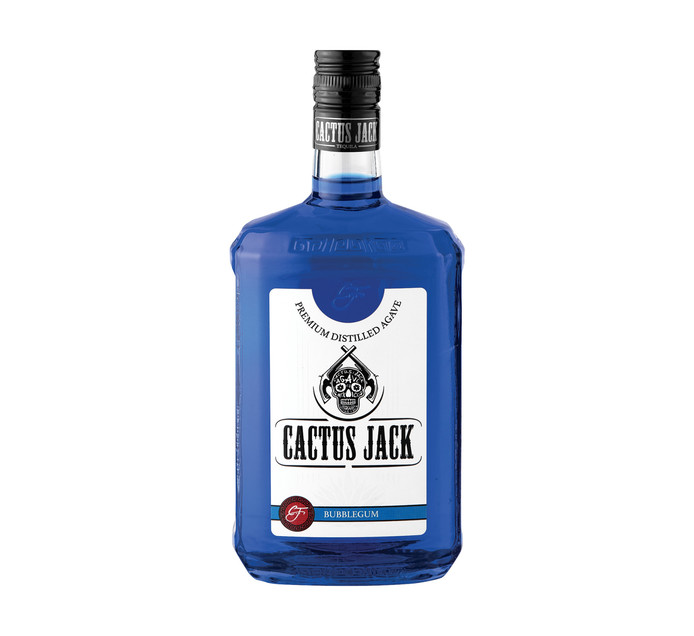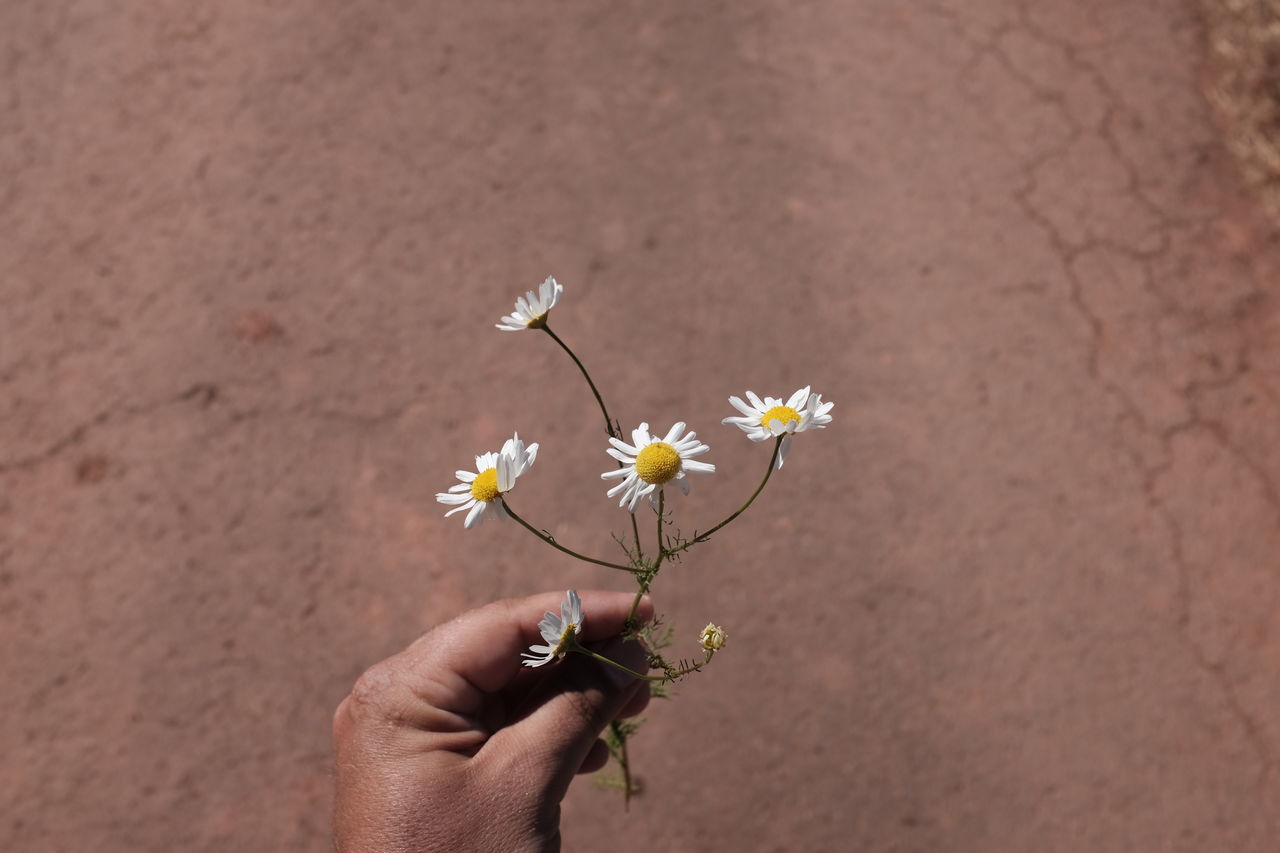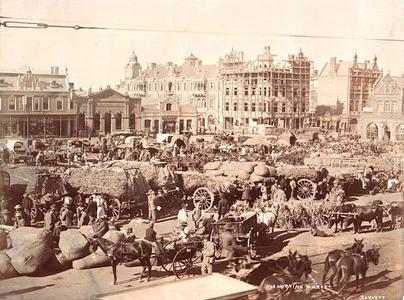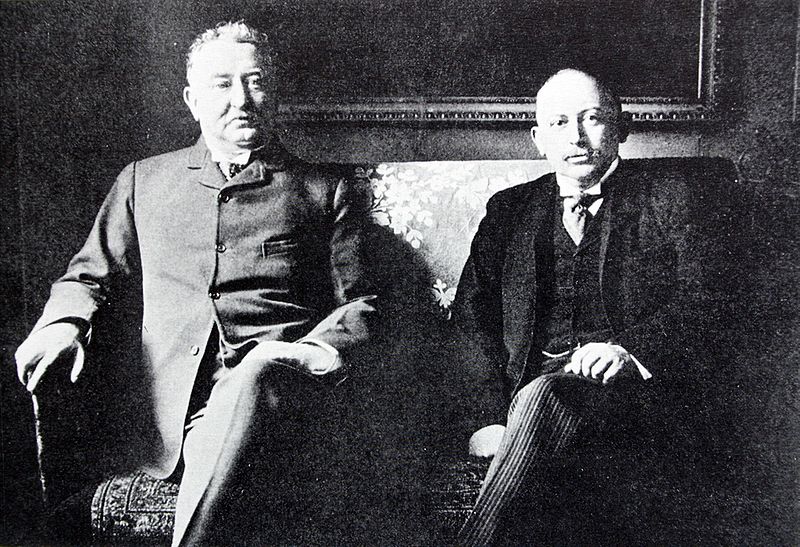 Now that the lockdown allows inter-provincial travel and family visits, Gertruida was happy to hear that a distant niece, Mathilda Grove, wanted to pay a visit.
Now that the lockdown allows inter-provincial travel and family visits, Gertruida was happy to hear that a distant niece, Mathilda Grove, wanted to pay a visit.
‘Mathilda is the epitome of the classic Old Maid Syndrome. Last time I heard, she was working at an old-age home in Paarl, where she took care of some old and infirm patients. A heart of gold, she has. A real gem.’ When Gertruida told the group in Boggel’s Place about the upcoming visit, old Servaas brightened a bit. It’s been years since Siena died and the dearth of possible replacements contributed to his constant grumpy state. Gertruida says old men get that way due to a chronic psychological massaging deficiency. She says PMD is far worse than PMS.
***
Rolbos shares some realities with other towns. One of these is the fact that nothing ever turns out exactly the way one anticipates it would be. When the large 4X4 bakkie (in America they call it a ‘truck’) slowed down to a stop in front of Boggel’s Place, the Rolbossers crowded the small window.
‘Look at that caravan,’ Vetfaan whispered.
‘Shees – look at that bakkie, man! And those tyres!’ Kleinpiet lets out a low whistle.
‘Who, in heaven’s name, is that?’ Gertruida points at the gentleman who scoots around the vehicle to open the passenger side door.
***
The gentleman turns out to be Albertus Visser, a one-time inhabitant of Sunset House in Paarl.
‘He used to sit beneath the old tree in the corner of the lawn. All by himself, see?’ Mathilda smiles as she strokes Albertus’s back. After all the introductions have been done, they are enjoying a cold beer on Gertruida’s tab. ‘Every day he sat there, morning till night, reading the Bible. We all thought he was a bit strange, you know? But in an old-age home you get all sorts of people and we nursing staff just let them be.’
‘Harrumph!’ Albertus clears his throat. In a voice that is strangely high-pitched, he continues: ‘An old-age home is the last stop. That’s where it all ends. So it makes sense to do a bit of reading in the Book, see? You know where you’ve been; but do you know where you’re going? So I was just familiarising myself…’
‘Yes he was afraid he’d never get through all the books in the Bible, poor man.’ Mathilda interrupts with a wink at her beau. ‘And I didn’t know his problem until he called me Mithald.’ Mathilda lets out a shriek of laughter. ‘Mithald! At first I thought he was stupid.’
‘Most people did. You weren’t the only one,’ Albertus smiled. ‘As far back as I can remember it’s been like that. And oh! The experiences I’ve had with teachers! Can’t even remember how many hidings I got.’
‘You see, Albertus tried to go to church in his younger days, but it just didn’t work out, did it, dear?’ The way she looks at Albertus makes him blush.
‘Thise little pamphlets were horrible. You had to fill in stuff on some of them. Others apparently told you what to expect in the next week. And then the dominee would tell you where to read in the Bible and finally, which songs to look up to sing. I nearly died.’
‘Now, now, dear, don’t get worked up all over again.’ Mathilda pats the old man’s arm. ‘It’s okay now.’
‘The problem was that that dominee once preached about going to heaven. He said nobody can make it without reading the Bible from cover to cover. So I was deep into Matthew when Mithald, er, Ma-thil-da, got involved.’
‘Ja, shame, the poor thing. When he looked at my name tag and called me Mithald, I realised what his problem was. Can you imagine how hard it is to progress right through the Good Book if you’ve got dyslexia? That’s why he struggled all those years – figuring out one word at a time.
‘Well, I took pity on the poor man. So I started doing the reading for him. Every day a few chapters. Took us four months, it did, but we got through it all in the end. It was our own lockdown blessing! By the time we finished Revelations, we got to know each other rather well..’
***
Gertruida says Mathilda is no longer the epitome of an old maid. Once Albertus made it to the end of Revelations (with Mathilda’s help), he didn’t have to isolate himself every day to try to make sense of the words. In fact, he realised that living love was better than reading about it. That, Gertruida says (because she knows so much) is the biggest revelation of all.
Old Servaas is still grumpy. He says Mathilda isn’t his type at all. He’s read the Bible already all by himself, so what’s the point?

 Whenever Gertruida gets near the end of one of her lo-o-o-ng stories, she’ll order a round of Cactus Jack, like she does now. That usually serves as a sort of warning for the audience to steel themselves – the climax is near. And that could be happy…or sad. Whichever way it goes, it helps to be prepared.
Whenever Gertruida gets near the end of one of her lo-o-o-ng stories, she’ll order a round of Cactus Jack, like she does now. That usually serves as a sort of warning for the audience to steel themselves – the climax is near. And that could be happy…or sad. Whichever way it goes, it helps to be prepared. ‘And then Susan had the strangest dream. Or vision. Or Imaginary moment. Whatever you call it, doesn’t matter. What matters is that she saw, or felt and heard, her mother. Francina was smiling, waving as she walked away from her. She blew a kiss and whispered goodbye. She was dressed in white and held a twig of Namaqua daisies in her hand. Susan saw her mother disappearing as if in a thin mist, and just before she was completely gone, she dropped the flowers.’
‘And then Susan had the strangest dream. Or vision. Or Imaginary moment. Whatever you call it, doesn’t matter. What matters is that she saw, or felt and heard, her mother. Francina was smiling, waving as she walked away from her. She blew a kiss and whispered goodbye. She was dressed in white and held a twig of Namaqua daisies in her hand. Susan saw her mother disappearing as if in a thin mist, and just before she was completely gone, she dropped the flowers.’ ‘You mother is dying, Miss Susan. Soon, she’ll know the world is on the other side. But we’ll stay behind for a while. We’ll join her when the time comes. But now, in this time, we must endure. Think about it: do we have a choice? Can the Gemsbok wish for more grass when the drought has withered the veld? No, they know how to endure – and that is what we must do now. Yes, we must grieve, but we must grieve with gratitude. Be happy for the past and look forward to the future. The rain will come again. The season will change. And we’ll be together again when the time is right.’
‘You mother is dying, Miss Susan. Soon, she’ll know the world is on the other side. But we’ll stay behind for a while. We’ll join her when the time comes. But now, in this time, we must endure. Think about it: do we have a choice? Can the Gemsbok wish for more grass when the drought has withered the veld? No, they know how to endure – and that is what we must do now. Yes, we must grieve, but we must grieve with gratitude. Be happy for the past and look forward to the future. The rain will come again. The season will change. And we’ll be together again when the time is right.’ ‘To describe the mindset of the Bothma family back then, you only have to consider what the average farmer feels like today.’ Gertruida makes a vague gesture with her free hand (the other holding a cold one, despite Tannie Zuma’s decrees). ‘Abandoned. Forlorn. Angry. Depressed. Like today’s farmers, they were realists. The war was drawing to a close after more than 11,000 South Africans – Black, White and Coloureds – died in battle. We simply do not know how many casualties our forces suffered, nor how many struggled with mental illness afterwards. What is known, is that the Afrikaners were fed up with the Smuts government.
‘To describe the mindset of the Bothma family back then, you only have to consider what the average farmer feels like today.’ Gertruida makes a vague gesture with her free hand (the other holding a cold one, despite Tannie Zuma’s decrees). ‘Abandoned. Forlorn. Angry. Depressed. Like today’s farmers, they were realists. The war was drawing to a close after more than 11,000 South Africans – Black, White and Coloureds – died in battle. We simply do not know how many casualties our forces suffered, nor how many struggled with mental illness afterwards. What is known, is that the Afrikaners were fed up with the Smuts government. Malan and Strijdom used the churches, the newspapers and the radios to re-educate an entire nation. Blatant propaganda focused on the danger of communism and the deterioration of independent African states. The progressive destruction of the country’s motto – ‘Ex Unitate Vires’, In unity lies our Strength – created an unbridgeable divide between the peoples who live in this beautiful country.
Malan and Strijdom used the churches, the newspapers and the radios to re-educate an entire nation. Blatant propaganda focused on the danger of communism and the deterioration of independent African states. The progressive destruction of the country’s motto – ‘Ex Unitate Vires’, In unity lies our Strength – created an unbridgeable divide between the peoples who live in this beautiful country.
 ‘Imagine the scene, guys.’ Gertruida closes her eyes to see the picture in her mind. ‘Oupa’s village was situated near a fountain, not too far from where Riemvasmaak is today. That area, like you know, had been home to the Khomani people for as long as they can remember. Of course, they preferred to be called Riemvasmakers, because of the history. Originally the group moved there from South West Africa, so in reality they weren’t necessarily San people, but more like the Damara lineage.’
‘Imagine the scene, guys.’ Gertruida closes her eyes to see the picture in her mind. ‘Oupa’s village was situated near a fountain, not too far from where Riemvasmaak is today. That area, like you know, had been home to the Khomani people for as long as they can remember. Of course, they preferred to be called Riemvasmakers, because of the history. Originally the group moved there from South West Africa, so in reality they weren’t necessarily San people, but more like the Damara lineage.’ For once, Gertruida wasn’t one hundred percent right. The Riemvasmakers were a diverse group – a minor rainbow nation, comprised of Khomani, Nama, Xhosa, Coloured and Herero people, as well as the Damaras. Although they called themselves Riemvasmakers as a collective term, the individual groups retained their cultures and oral histories. Oupa’s group was a minority. The Khomani once lived in scattered groups in the Northern Cape, South West Africa and Bechuanaland Protectorate. Quite a number of them settled in the Mier area, where their culture was preserved to some degree.
For once, Gertruida wasn’t one hundred percent right. The Riemvasmakers were a diverse group – a minor rainbow nation, comprised of Khomani, Nama, Xhosa, Coloured and Herero people, as well as the Damaras. Although they called themselves Riemvasmakers as a collective term, the individual groups retained their cultures and oral histories. Oupa’s group was a minority. The Khomani once lived in scattered groups in the Northern Cape, South West Africa and Bechuanaland Protectorate. Quite a number of them settled in the Mier area, where their culture was preserved to some degree. ‘Nobody, especially the colonial power of England, ever managed to subdue the Afrikaners, you know.’ Gertruida – who knows everything – frowns. ‘Not the English, especially, after the way they treated women and children during the Anglo-Boer War. South Africans have a very long memory, understand – all of us – and we nourish and care for our personal grudges with great compassion.
‘Nobody, especially the colonial power of England, ever managed to subdue the Afrikaners, you know.’ Gertruida – who knows everything – frowns. ‘Not the English, especially, after the way they treated women and children during the Anglo-Boer War. South Africans have a very long memory, understand – all of us – and we nourish and care for our personal grudges with great compassion.
 ‘The other good thing that happened during the flu epidemic, was Francina Malan, a young nurse who had heard of Oupa’s Powders. Unlike most of the Johannesburg Hospital staff, she wasn’t a nun. If I have to guess, she might not even have been a qualified nurse, and maybe just a sort-of helper, a nursing assistant of sorts. All we know today, is that she worked in the Barney Bernato wing of the hospital, where a lot of flu patients died.
‘The other good thing that happened during the flu epidemic, was Francina Malan, a young nurse who had heard of Oupa’s Powders. Unlike most of the Johannesburg Hospital staff, she wasn’t a nun. If I have to guess, she might not even have been a qualified nurse, and maybe just a sort-of helper, a nursing assistant of sorts. All we know today, is that she worked in the Barney Bernato wing of the hospital, where a lot of flu patients died. ‘Anyway, most probably out of sheer desperation, she bought some of Oupa’s Powders from one of the street vendors and mixed it into a patient’s soup. The patient made a wonderful recovery. She then wanted to know more about the remedy and, following the trail back to Oupa, she met CJ.’
‘Anyway, most probably out of sheer desperation, she bought some of Oupa’s Powders from one of the street vendors and mixed it into a patient’s soup. The patient made a wonderful recovery. She then wanted to know more about the remedy and, following the trail back to Oupa, she met CJ.’


 Susan Bothma was a petite young lady with an athletic body and a strong mind. Born to an older couple – after years of trying to fall pregnant – she was spoiled from day one. Her room was spacious and overflowed with Teddies, soft toys, lights of various colours and soft music. The Bothma’s were an extremely rich and clever family. Their fortune was built up over many generations, starting with some shares Great-great Grandfather Loser Bothma won in a poker game in Kimberley.
Susan Bothma was a petite young lady with an athletic body and a strong mind. Born to an older couple – after years of trying to fall pregnant – she was spoiled from day one. Her room was spacious and overflowed with Teddies, soft toys, lights of various colours and soft music. The Bothma’s were an extremely rich and clever family. Their fortune was built up over many generations, starting with some shares Great-great Grandfather Loser Bothma won in a poker game in Kimberley. Loser knew he was way past his prime and that his later years would be spent in abject poverty. And then, one day, as he shoveled one dejected spadeful of dusty gravel after the other on to the sieve, a little gust of wind changed his fortune in the blink of an eye. He noticed the spark of reflected sunlight first and when he forced his aching back to bend a bit further, he picked up a pure blue diamond the size of his thumb. It was perfect in every way.
Loser knew he was way past his prime and that his later years would be spent in abject poverty. And then, one day, as he shoveled one dejected spadeful of dusty gravel after the other on to the sieve, a little gust of wind changed his fortune in the blink of an eye. He noticed the spark of reflected sunlight first and when he forced his aching back to bend a bit further, he picked up a pure blue diamond the size of his thumb. It was perfect in every way.


 Gertruida – who knows everything – will tell you, you get many types of winds. You get sandy winds that drive the Kalahari sand so hard it takes the paint off your vehicle. Sometimes you get a wet wind with a few scattered raindrops between the dust particles. And there is the cold wind that chills the very life out of everything.
Gertruida – who knows everything – will tell you, you get many types of winds. You get sandy winds that drive the Kalahari sand so hard it takes the paint off your vehicle. Sometimes you get a wet wind with a few scattered raindrops between the dust particles. And there is the cold wind that chills the very life out of everything. A Dismal Wind blows in from the west, from the Namibian coast where the cold Benguela sea stream courses northward. Here the wind picks up moisture to form a fog that feeds the sparse succulent plants in the desert and the occasional desert beetle collects on its surface. (They stand on their heads to drink, incidentally.)
A Dismal Wind blows in from the west, from the Namibian coast where the cold Benguela sea stream courses northward. Here the wind picks up moisture to form a fog that feeds the sparse succulent plants in the desert and the occasional desert beetle collects on its surface. (They stand on their heads to drink, incidentally.) attempts to contact Pottie failed, she took to writing letters. Long, forgiving love letters, which she wedged between the locked farm gate and the post of the two-spoor road leading to Potties farm. There they remained stuck while she added more and more letters every week – for months.
attempts to contact Pottie failed, she took to writing letters. Long, forgiving love letters, which she wedged between the locked farm gate and the post of the two-spoor road leading to Potties farm. There they remained stuck while she added more and more letters every week – for months.